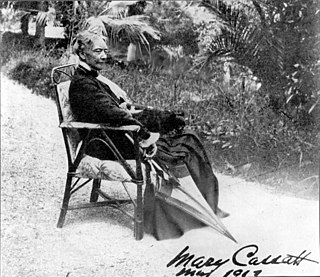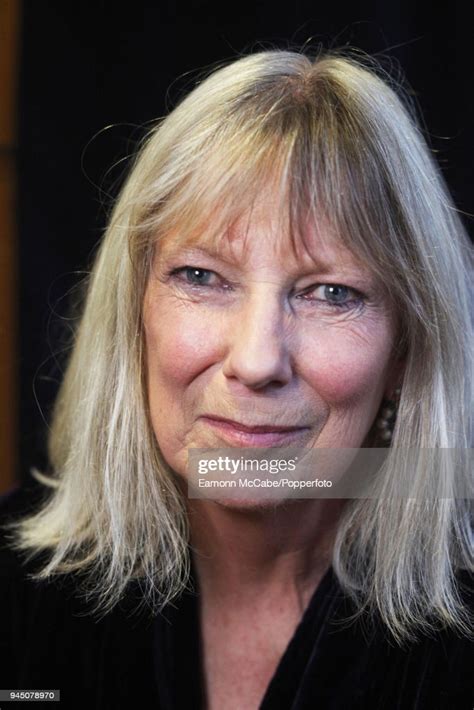A Quote by Warren MacKenzie
Other thing about [Field Museum of Natural History] which inspired was that in a group of pots you wouldn't see a single example of this kind of pot. You would perhaps see a case with 20 different examples. So you realize that these pots could be repeated again and again, and each time there would be minor variations in them.
Related Quotes
If a pot can multiply. One day Nasrudin lent his cooking pots to a neighbour, who was giving a feast. The neighbour returned them, together with one extra one – a very tiny pot. 'What is this?' asked Nasrudin. 'According to law, I have given you the offspring of your property which was born when the pots were in my care,' said the joker. Shortly afterwards Nasrudin borrowed his neighbour's pots, but did not return them. The man came round to get them back. 'Alas!' said Nasrudin, 'they are dead. We have established, have we not, that pots are mortal?'.
In looking at these pots at the Field Museum, Alix [MacKenzie] and I both came to a conclusion individually but also collectively that the pots that really interested us were the pots that people had used in their everyday life, and we began to think - I mean, whether it was ancient Greece or Africa or Europe or wherever, the pots that people had used in their homes were the ones that excited us.
In fact, when Bernard [Leach] would be called away to go up to London for something and we'd be living alone for a couple of days, we would dig into the storage areas in the house and we'd get out all the pots that we might not see in the course of our daily life, because we weren't using them in the house on a steady basis. But we found some fantastic pots in there tucked away, and we could look at them and examine them and handle them.
I think back to some of the pots we made when we first started our pottery, and they were pretty awful pots. We thought at the time they were good; they were the best we could make, but our thinking was so elemental that the pots had that quality also, and so they don't have a richness about them which I look for in my work today. Whether I achieve it all the time, that's another question, because I don't think a person can produce at top level 100 percent of the time.
I make a lot of pots in a year's time and some of them are good and some of them are mediocre and some of them are bad. If they're really bad and I'd be ashamed of them, I throw them out, but if they're mediocre and they'll serve the purpose for which they're designed, that is, a mixing bowl or a soup bowl or a plate or whatever, I sell them. And this income from the sale of these pots permits me to go on and make other pots. It's even more important now that I've quit teaching, because I do not have a teacher's salary to fall back on.
Human beings look separate because you see them walking about separately. But then we are so made that we can see only the present moment. If we could see the past, then of course it would look different. For there was a time when every man was part of his mother, and (earlier still) part of his father as well, and when they were part of his grandparents. If you could see humanity spread out in time, as God sees it, it would look like one single growing thing--rather like a very complicated tree. Every individual would appear connected with every other.
Like, when we did Parliament and Funkadelic and Bootsy, it was actually one thing. But there were so many people that you could split them up into different groups. And then, when we went out on tour and they [the record companies] would see us all up there together - we had five, six guitars playing at one time, not including the bass! -, they said: "Wait a minute, that's just one whole group, selling different names!" But it wasn't - we had enough people in the group that each member would have a section to be another group. So now we're finally starting to get them to understand that.
We never had a catalogue; we never said we were going to duplicate these pots this year and next year and the year after that and so forth. We did make many pots which were repeated, but we allowed them to change and to grow as we changed and grew, and I think that was the big difference. And that's all right; we were working for ourselves. We didn't have anybody we had to pay.
[In the Field Museum of Natural History] we could see very simple, primitive, hand-built pottery from Babylonia and ancient Egypt and so forth, Greece. We could see the most sophisticated things that came out of the Orient - Japan, Korea, and China - some few pieces of European porcelain, majolica [tin glazed earthenware], and that sort of thing. But they had a marvelous collection.
Looking back on it now, I understand why that was not possible [to express ourselves], because the pottery employed a dozen people, not all of whom are making pots. And these people had families, children, and they had to have a wage that would allow them to raise their family and they had to get a paycheck every Friday afternoon. So if we had not made pots that would sell it, would not have been possible for these people to be employed.
I'm striving to make things which are the most exciting things I can make that will fit in people's homes. And in that respect, working on the wheel is economically about the only answer I know, because one can, as Leach said, make 50 pots in a day. You can make 100 pots in a day. A really good potter can make 400 pots in a day.
I actually think history doesn't repeat itself. There are recurrent themes, but they're repeated with variations. Each time there's an immigration crisis, a threat from outside which is met with inhospitable wall building, it's different. And I think it's helpful to notice the big patterns in history, but it's also important to pay attention to the details, which makes each situation distinct from another.
Extinction has only separated groups: it has by no means made them; for if every form which has ever lived on this earth were suddenly to reappear, though it would be quite impossible to give definitions by which each group could be distinguished from other groups, as all would blend together by steps as fine as those between the finest existing varieties, nevertheless a natural classification, or at least a natural arrangement, would be possible.

























